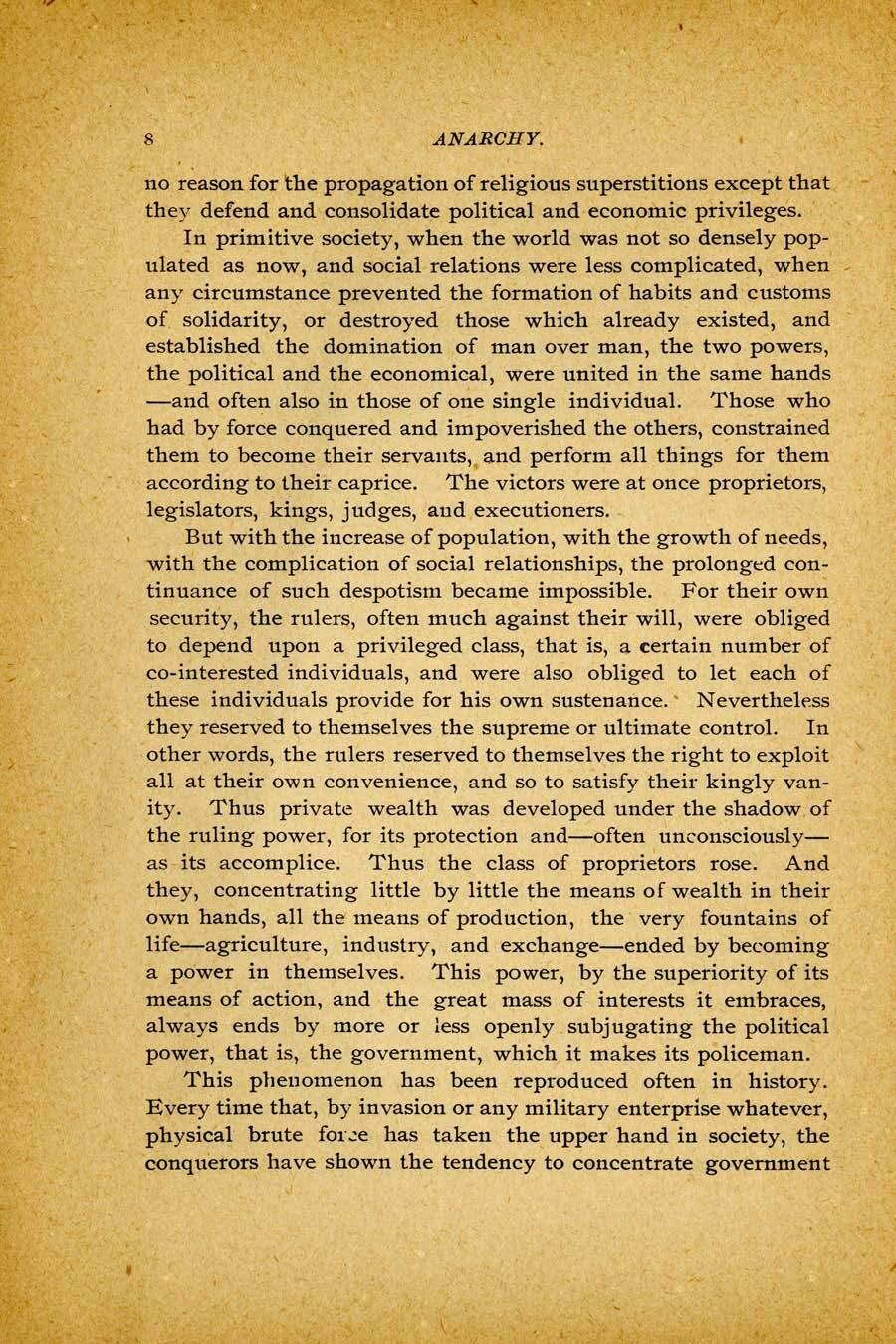no reason for the propagation of religious superstitions except that they defend and consolidate political and economic privileges.
In primitive society, when the world was not so densely populated as now, and social relations were less complicated, when any circumstance prevented the formation of habits and customs of solidarity, or destroyed those which already existed, and established the domination of man over man, the two powers, the political and the economical, were united in the same hands—and often also in those of one single individual. Those who had by force conquered and impoverished the others, constrained them to become their servants, and perform all things for them according to their caprice. The victors were at once proprietors, legislators, kings, judges, and executioners.
But with the increase of population, with the growth of needs, with the complication of social relationships, the prolonged continuance of such despotism became impossible. For their own security, the rulers, often much against their will, were obliged to depend upon a privileged class, that is, a certain number of co-interested individuals, and were also obliged to let each of these individuals provide for his own sustenance. Nevertheless they reserved to themselves the supreme or ultimate control. In other words, the rulers reserved to themselves the right to exploit all at their own convenience, and so to satisfy their kingly vanity. Thus private wealth was developed under the shadow of the ruling power, for its protection and—often unconsciously—as its accomplice. Thus the class of proprietors rose. And they, concentrating little by little the means of wealth in their own hands, all the means of production, the very fountains of life—agriculture, industry, and exchange—ended by becoming a power in themselves. This power, by the superiority of its means of action, and the great mass of interests it embraces, always ends by more or less openly. subjugating the political power, that is, the government, which it makes its policeman.
This phenomenon has been reproduced often in history. Every time that, by invasion or any military enterprise whatever, physical brute force has taken the upper hand in society, the conquerors have shown the tendency to concentrate government
